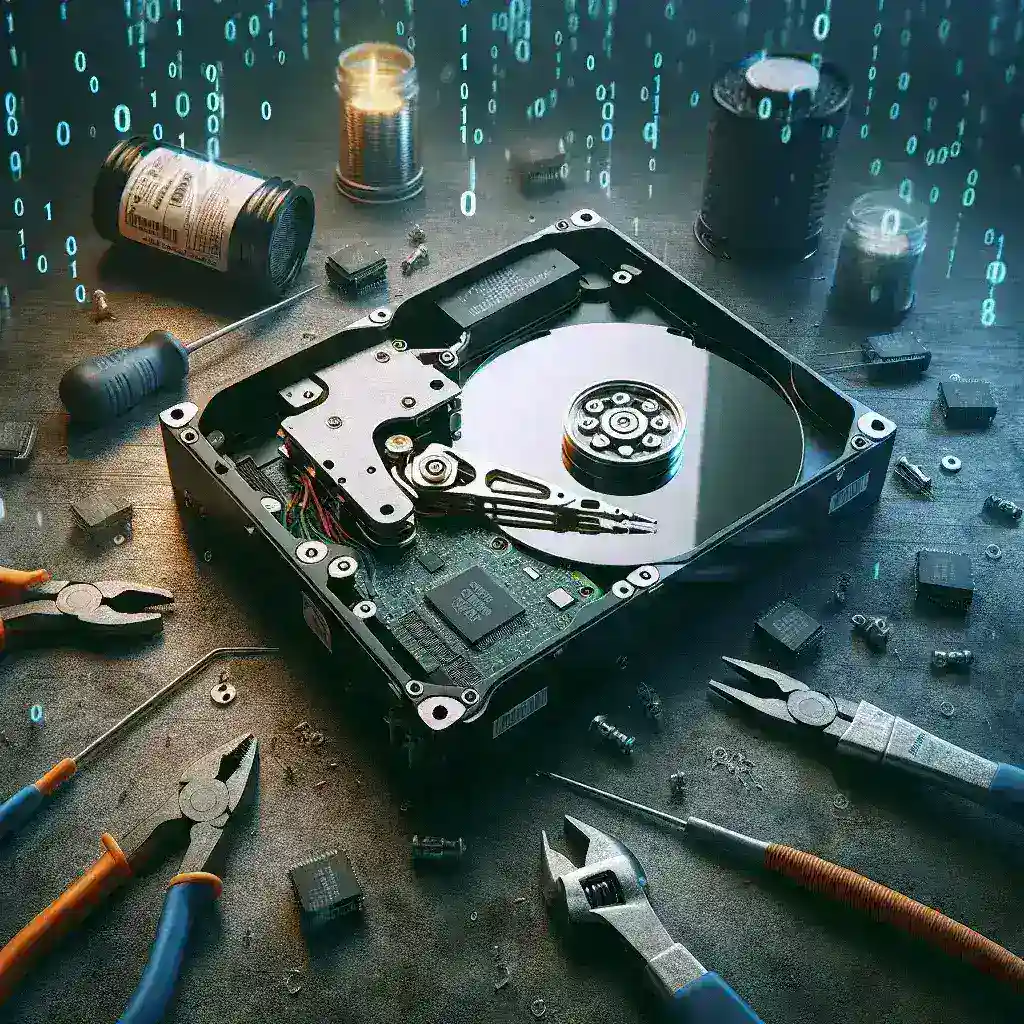Data loss can be a devastating experience, especially when critical information is stored on malfunctioning or failed disks. Dead disks can result from various issues, including hardware failure, software corruption, or physical damage. In such scenarios, data recovery services play a pivotal role in retrieving important data, ensuring business continuity, and safeguarding personal information.
Understanding Dead Disks
A dead disk is a storage device that has ceased to function correctly, rendering the data inaccessible through standard means. Dead disks can affect hard disk drives (HDDs), solid-state drives (SSDs), and other storage media. Identifying the root cause of disk failure is essential to determine the appropriate recovery method.
Common Causes of Disk Failure
- Hardware Failures: Physical components of the disk, such as the read/write head or platters in HDDs, can fail due to wear and tear or manufacturing defects.
- Software Corruption: Malicious software, accidental deletion, or file system corruption can make data inaccessible.
- Physical Damage: Exposure to extreme temperatures, moisture, or physical shocks can damage storage devices.
- Power Surges: Sudden power outages or surges can disrupt disk functionality.
The Importance of Data Recovery Services
Data recovery services are specialized systems and professionals dedicated to retrieving data from failed or inaccessible storage devices. These services are crucial for both individuals and businesses to prevent permanent data loss, which can have significant financial and operational implications.
How Recovery Services Retrieve Data from Dead Disks
Assessment
The first step in data recovery is assessing the extent of the damage to the disk. Recovery experts diagnose whether the issue is logical, involving software and data structures, or physical, involving hardware components.
Data Extraction
Once the nature of the failure is determined, the recovery process begins with data extraction. For logical failures, this might involve using specialized software to reconstruct data. For physical failures, it often requires a cleanroom environment to repair or replace damaged components before accessing the data.
Data Reconstruction
After extraction, data reconstruction involves piecing together fragmented files and repairing corrupted data structures to restore the information to its original state.
Types of Recovery Services
Logical Recovery
Logical recovery deals with data loss resulting from software issues, such as accidental deletion, virus attacks, or file system corruption. Recovery services use software tools and techniques to recover lost or damaged files.
Physical Recovery
Physical recovery addresses data loss caused by hardware failures. This process often involves repairing or replacing damaged parts of the storage device in a controlled environment before extracting the data.
Benefits of Professional Recovery Services
- Expertise: Professionals have the knowledge and tools to handle various types of disk failures effectively.
- Data Integrity: Ensuring the recovered data maintains its original integrity and structure.
- Confidentiality: Secure handling of sensitive information during the recovery process.
- Time Efficiency: Faster data recovery compared to attempting it independently.
Best Practices to Prevent Disk Failure
- Regular Backups: Maintain frequent backups of important data to prevent loss.
- Use Reliable Hardware: Invest in high-quality storage devices with good reviews and warranties.
- Avoid Physical Shocks: Handle storage devices carefully to prevent physical damage.
- Implement Surge Protection: Use surge protectors to safeguard against power fluctuations.
- Regular Maintenance: Perform routine checks and maintenance on storage devices to identify potential issues early.
Conclusion
Recovery services play an indispensable role in retrieving data from dead disks, offering expertise and advanced tools to recover valuable information that might otherwise be lost forever. Whether dealing with logical or physical disk failures, professional data recovery services provide a vital safety net for individuals and businesses alike, ensuring data integrity and continuity.


Leave a Reply